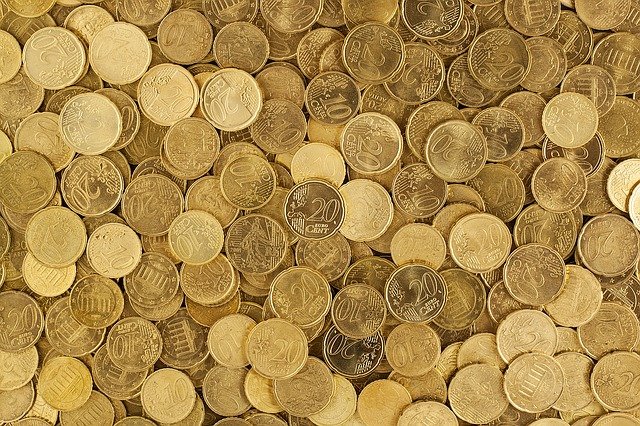A financial records is a sort of ledger that offers simple admittance to stored reserves. In contrast to different sorts of financial balances – including investment funds – financial records commonly permit limitless withdrawals and stores, settling on them a decent decision to cover your regular spending.
In return for this adaptability, financial records will in general compensation low loan costs (on the off chance that they pay revenue by any means) contrasted with bank accounts, declarations of store (CDs) and different records that permit you to become your money.1 As such, it’s a smart thought to utilize your financial records just for cash you’ll need to access for common buys and your month to month bills. All the other things should go into accounts that offer higher profit potential.
There are a few advantageous approaches to get to the cash in a financial records. For instance, you can:
Compose checks.
Make buys with a check card associated with your record.
Set aside withdrawals and installments with your ATM card.
Visit your nearby office to put aside withdrawals and installments.
Utilize the bank’s online bill pay administration to cover one-time bills or set up repeating installments.
Set up programmed installments through an organization where you have a record, for example, utilities and Mastercards.
Move assets to and from other ledgers.
Prior to opening a financial records, it’s useful to comprehend the various kinds of records that are accessible, just as the down to earth parts of keeping a financial records –, for example, how to compose a check and equilibrium your record. To kick you off, here’s a fast manual for assist you with picking and deal with a financial records.
Free Checking Accounts – and How to Qualify for One
Free financial records are more uncommon than they used to be. As per Bankrate, just 38% of banks currently offer free checking, contrasted and 76% in 2009. When all is said in done, you’ll have better karma discovering free checking at local area banks, credit associations (search for “reward checking”) and online banks than everywhere blocks and cement banks.2 3
Free checking implies a financial records with no month to month support expense or potentially least equilibrium prerequisites. A few banks offer free checking in the event that you pursue electronic explanations or set up direct store, which permits your boss to electronically store your check into your ledger each payroll interval. Remember, in any case, there might be a base direct store sum – say, $250 each month – and on the off chance that you fall beneath that or the immediate stores stop, you’ll lose the free checking status. Furthermore, obviously, free doesn’t mean no expenses: You’ll actually be on the snare for any overdraft charges and different expenses. (See Which U.S. banks offer free financial records?)
Interest-Bearing Checking Accounts
With a premium bearing financial records, you bring in revenue on the cash in the record – similarly as you would in a bank account. Not at all like a bank account, notwithstanding, you’ll have the option to compose checks and utilize your charge card to make buys and cover bills. (See additionally Money Market Account versus High-Interest Checking Account: Which Is Better?)
Not all banks offer revenue bearing financial records, and those that do may have least equilibrium necessities (which could be very high), month to month upkeep expenses and different conditions, for example, a base number of charge card exchanges every month. Financing costs shift incredibly by bank – presently somewhere in the range of 0.01% to 5% – so it pays to search around if premium is essential to you. When all is said in done, you’ll find better rates at credit unions.3
Premium Accounts and Qualifications
Premium financial records offer advantages past what you get with a standard record. Advantages fluctuate by bank and can incorporate revenue installments, postponed charges (e.g., free public accountant administrations and free cash orders), free monetary counsel and limits on the bank’s other monetary items. At certain banks, you can acquire reward focuses when you make buys, which can be recovered for qualified items and administrations.
As a rule, premium records require a higher equilibrium than standard records: You’ll ordinarily require a base every day total of at any rate $2,500 or a joined surplus of at any rate $10,000 or more (consolidated stores and credits) to fit the bill for a head financial records. Note that if your equilibrium falls underneath the limit, you’ll probably be on the snare for the month to month charge. (Peruse likewise Is a Premium Checking Account Worth It?)
Help and Second Chance Checking Accounts
Help accounts (in some cases called essential records) are smoothed out financial records intended for low-pay clients. These records commonly have low equilibrium prerequisites and no month to month expenses. Fundamental highlights like check composing are incorporated, however you might be restricted to a specific number of exchanges every month. Huge banks offer these records to give banking administrations to the wide open – and a few states expect banks to offer them.4
Another sort of record is another opportunity financial records, which might be a decent choice on the off chance that you’ve been turned down for a financial records because of a past financial error or terrible credit. These records commonly have month to month expenses that can’t be deferred, and you might be needed to set up direct store as well as complete a cash the executives class. Notwithstanding these limits, these records are frequently better – as far as charges and accommodation – than utilizing pre-loaded charge cards and check changing administrations. Your Second Chance at Checking has the subtleties.
What Is a Joint Checking Account?
A shared service is a financial balance shared by at least two individuals, frequently family members or colleagues. A joint financial records capacities like a standard financial records, however each named account holder can add to and utilize the cash in the record.
These records are valuable for couples (wedded and something else; consider Managing To be as a Couple), guardians and young people, and grown-up kids assisting maturing guardians with dealing with their accounts. Since everybody on the record approaches the assets, it’s imperative to set clear assumptions from the begin to evade possible issues and overdrawing the record.
What Is a Trust Checking Account?
On the off chance that you are not a trustee or a trust recipient, this sort of financial records will not be on your radar. In a trust account, a trustee controls the record resources to serve someone else or gathering. The trustee is regularly a relative, lawyer or bookkeeper who has acknowledged duty regarding dealing with the record.
A trust normally needs its own financial records, which permits the trustee(s) to cover bills, make installments to recipients (per the trust arrangement) and deal with the trust’s assets. A trust should be set up before a trust financial records can be opened, and just the assigned trustee(s) can open a ledger for the trust. At times, a trust arrangement may contain rules in regards to trust financial records – for instance, that the trust should utilize a specific bank. Make certain to peruse the trust understanding and adhere to any standards prior to opening a record. (Peruse more at Account in Trust.)
Understudy Accounts
Understudy financial records work much the same as standard financial records, however they will in general offer lower account essentials and lower charges. Numerous banks and credit associations, for instance, offer a month to month support expense waiver – or if nothing else a rebate on the month to month charge – for understudy financial records.
Likewise with other financial records, you might have the option to evade expenses in the event that you set up direct store, keep a base every day equilibrium or make a specific number of charge card buys every month. Understudy financial records are commonly accessible to understudies ages 17-24; you might be needed to give evidence of dynamic enlistment in a passing secondary school, school, college or professional program.
ATM/Debit Cards
Charge cards let you effectively access the cash in your financial records to pay for regular costs. Charge cards work like Mastercards, besides when you make a buy, that cash emerges from your record (you don’t have the alternative of taking care of the buy later as you do with a Visa; see Credit versus Check Cards: Which Is Better?). Basically, utilizing a charge card is much the same as composing a check, yet with the comfort of utilizing plastic.
You can likewise utilize your charge card to pull out money from your financial records through an ATM machine – you’ll have to utilize the individual distinguishing proof number (PIN) that you made when you opened your record. Note that you might be charged an expense for utilizing your ATM card outside of your bank’s ATM organization. What’s more, if your card doesn’t have the Visa or MasterCard logo, it must be utilized to make ATM withdrawals; not at all like charge cards, these ATM cards can’t be utilized to make buys.
What Is a Cashier’s Check?
A clerk’s check is a check drawn from your bank’s assets rather than your own. These checks are utilized when you need to ensure that assets are accessible for installment. They’re ideal for huge buys like a vehicle or a house initial installment, when a credit or charge card installment wouldn’t be commonsense. Since you should initially store the measure of the look into your bank’s own record, the bank – and not you – ensures its installment. A bank agent signs the check and incorporates the name of a payee (the element to which the check is payable) and the name of the remitter (the element paying for the check). On the off chance that you purchase a clerk’s check, you’ll pay the full-face estimation of the check, in addition to a little expense for the assistance except if your record has exceptional advantages.


